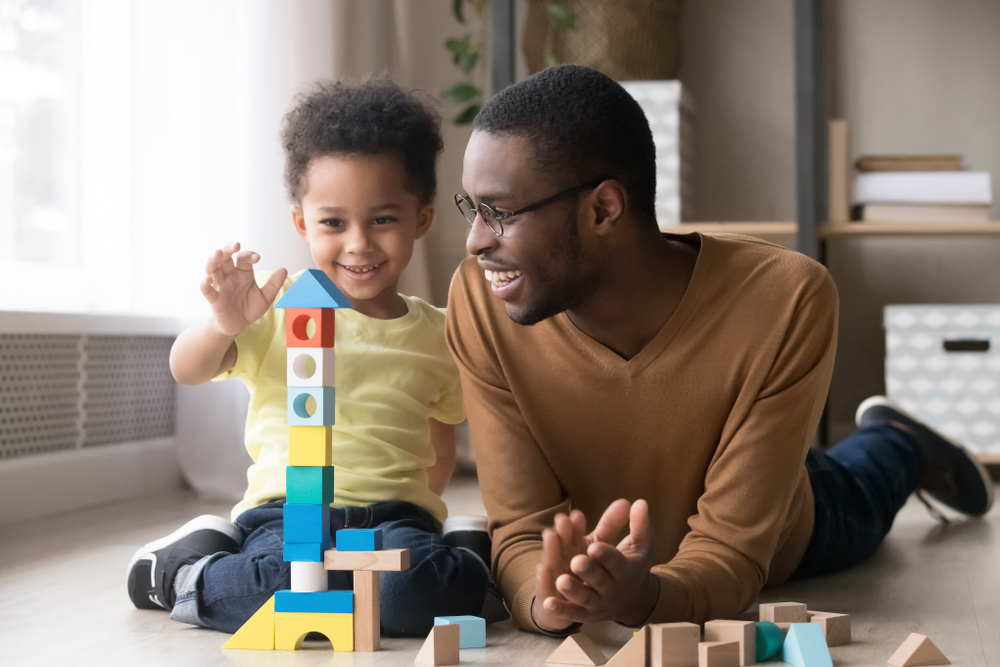Phonics development Worksheets for Ages 3-9
5 filtered results
-
From - To
Our Phonics Development Worksheets for ages 3-9 offer engaging, educational resources designed to build essential reading skills. Each printable worksheet is tailored to different age groups and skill levels, fostering alphabet recognition, sound blending, and word formation. Through fun, interactive activities, children gradually progress from identifying letters to reading simple sentences. Perfect for both classroom use and homeschooling, our worksheets ensure a strong phonics foundation, promoting confidence and a lifelong love of reading. Dive into our extensive collection today to support your child's phonics journey and witness their language skills flourish.
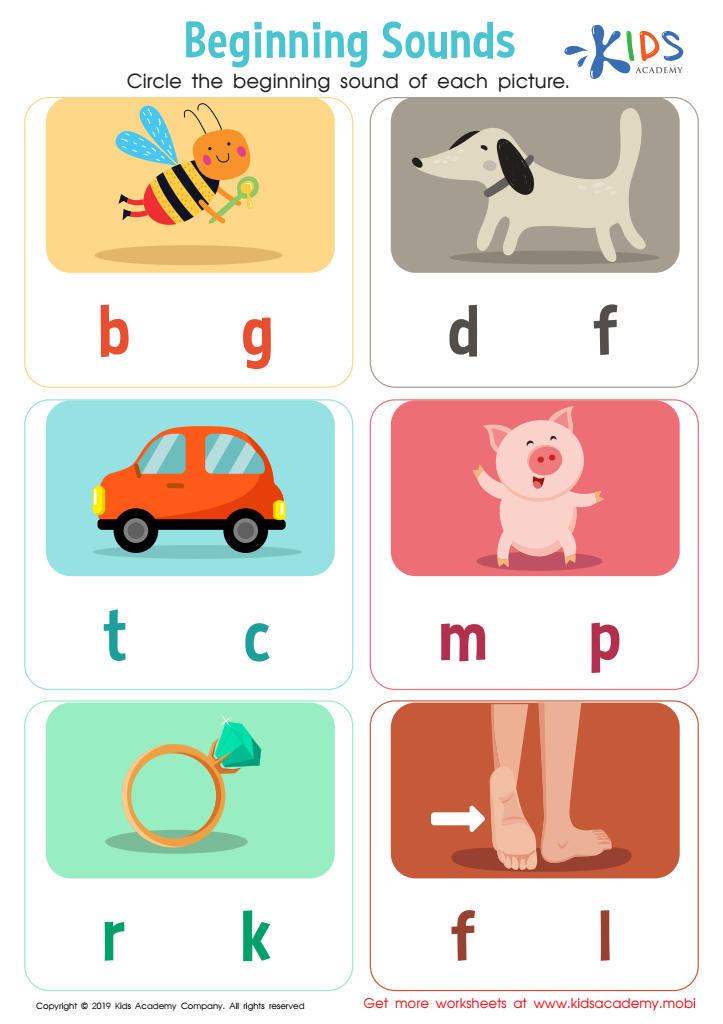

Beginning Sounds Worksheet
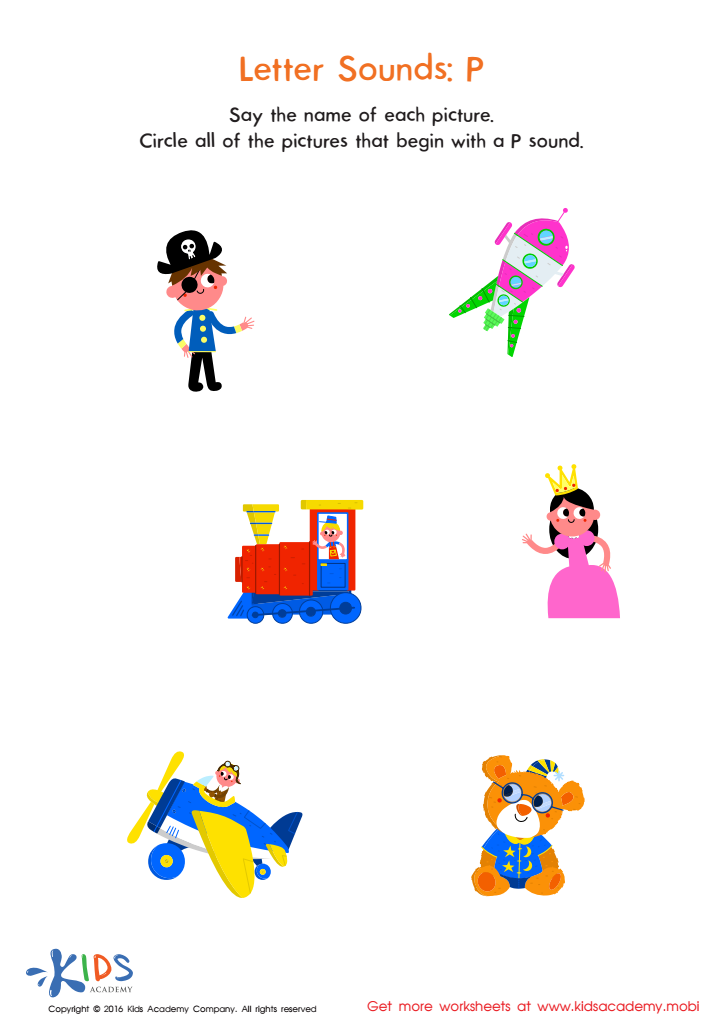

Letter P Sound Worksheet
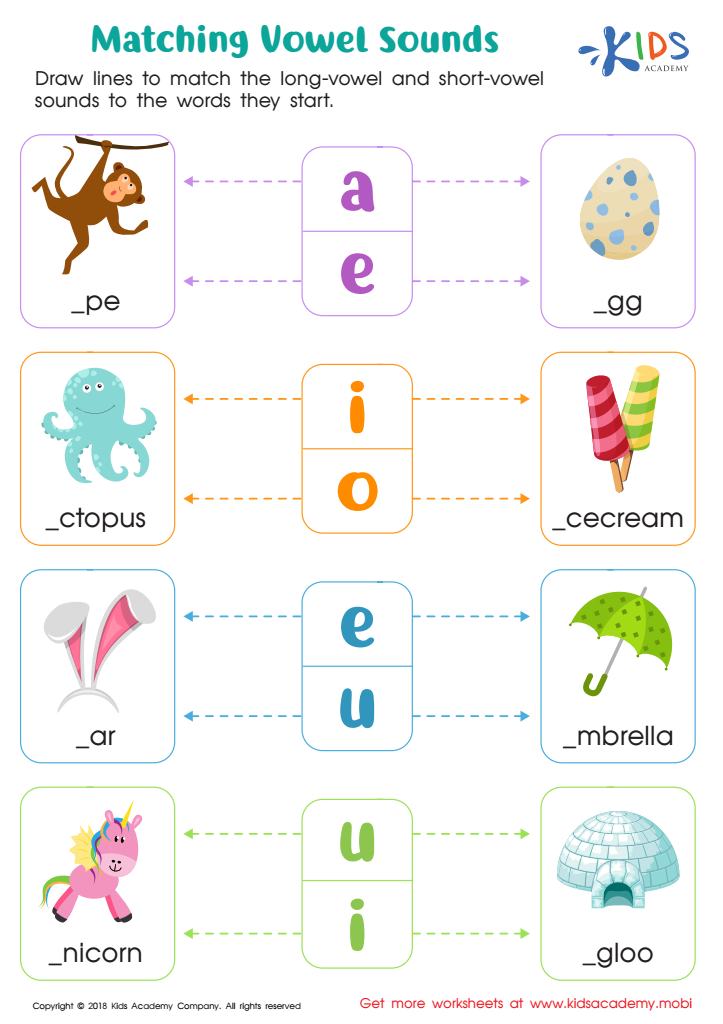

Matching Vowel Sounds Worksheet
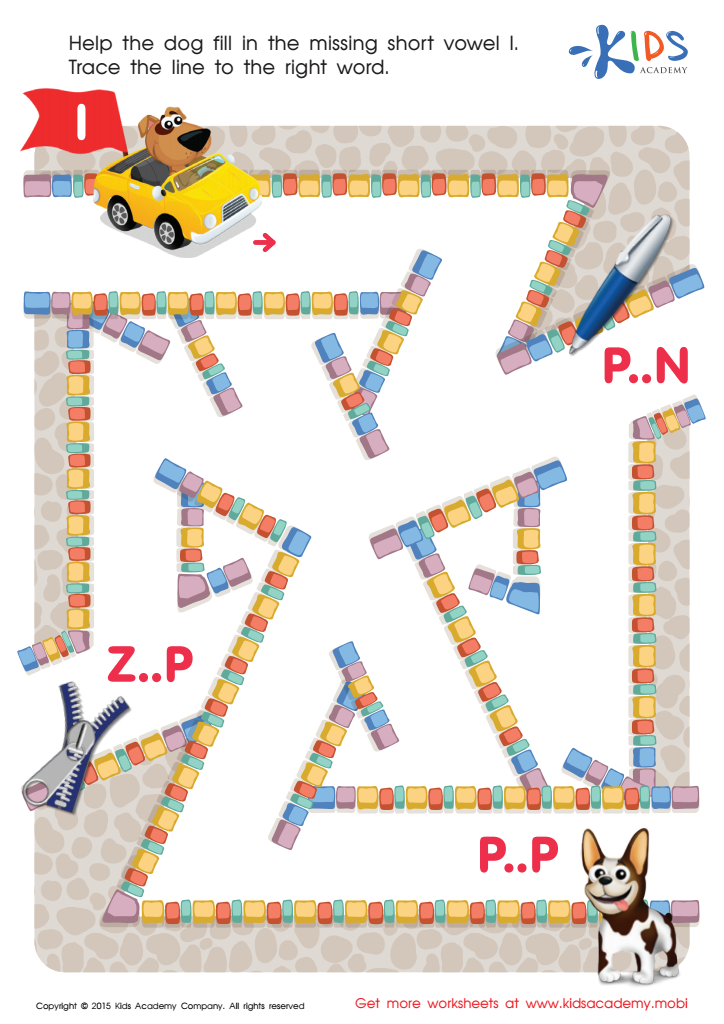

Short Vowel Sound I Worksheet
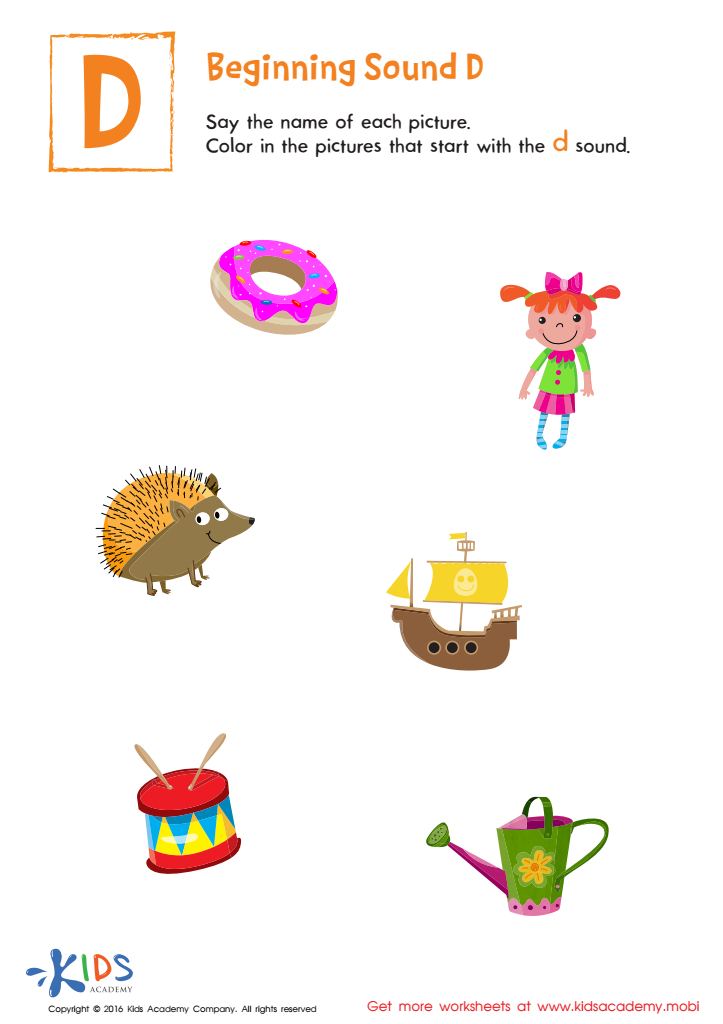

Beginning Sound D Worksheet
Phonics development is crucial for children aged 3-9 as it lays the foundation for reading and literacy skills. Phonics teaches children the relationship between letters and sounds, which is essential for decoding words and fostering reading fluency. When children understand how letters combine to form sounds and words, they become more confident readers.
During these formative years, a strong grasp of phonics can significantly enhance vocabulary, comprehension, and spelling abilities. Early exposure ensures that children are better prepared for more advanced reading and writing tasks later on.
Additionally, phonics development positively influences cognitive skills such as memory, attention, and problem-solving, contributing to overall academic success. It sets the stage for independent learning, as children who can read well are likely to explore books and acquire knowledge across various subjects.
For parents and teachers, investing in phonics education means empowering children with the skills they need to succeed. Engaging children in fun and interactive phonics activities also fosters a love for reading, making learning an enjoyable experience. Overall, prioritizing phonics development not only equips children with essential reading proficiency but also opens up a world of knowledge and imagination, providing a vital base for lifelong learning.

 Assign to My Students
Assign to My Students






